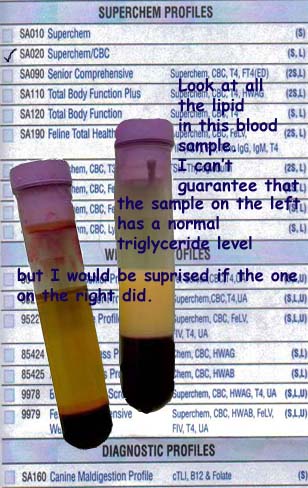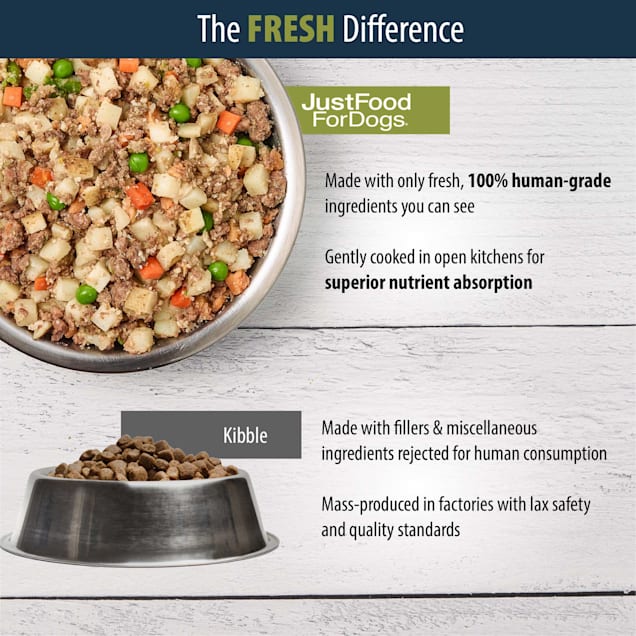Increased triglycerides in a dog
Increased Triglycerides In A Dog. Elevated AP is normal in puppies due to bone growth. Triglyceride levels normally increase after a dog eats but should return to normal between 3 and 10 hours later. Much of the time elevated cholesterol or triglycerides are a marker for a disease of the endocrine system that is a disease involving the bodys hormones. Medical conditions that may increase blood triglyceride levels include thyroid disease diabetes liver and kidney diseases and overweight and obesity.
 Correlations Between Different Cholesterol And Triglyceride Lipoprotein Download Table From researchgate.net
Correlations Between Different Cholesterol And Triglyceride Lipoprotein Download Table From researchgate.net
Sometimes the gene you inherited can cause high blood triglyceride levels. High levels of triglycerides greater than 200 mgdl are associated with an increased risk of atherosclerosis and therefore coronary artery disease and stroke. But they have nothing to do with the heart. Combined hypercholesterolemia and hypertriglyceridemia. Hyperlipidemia is the increased concentration of triglyceride hypertriglyceridemia cholesterol hypercholesterolemia or both in the blood1-3 Hyperlipidemia in dogs and cats can be physiological. Hereditary hyperlipidemia is most common in Schnauzers Shetland Sheepdogs and Collies though other breeds can also be affected.
Seen most often in Miniature Schnauzers and Brittany Spaniels.
Both dogs and cats can have high cholesterol and triglyceride levels but dogs are more often affected. Lipids are insoluble meaning they are not easily dissolved in water. Uric acid is formed in the liver from the catabolism of the nucleic acids adenine and guanine. The two most important lipids in pets are cholesterol and triglycerides. Seen most often in Miniature Schnauzers and Brittany Spaniels. There are in fact diseases that may cause a dogs level of cholesterol or triglycerides in the blood to be too high.

Dog Canine Hyperlipidemia Hypertriglyceridemia Hypercholesterolemia abstract Lipid metabolism in dogs can be divided into exogenous and endogenous pathways and exhibits some unique characteristics compared to other species. Triglyceride levels normally increase after a dog eats but should return to normal between 3 and 10 hours later. Sometimes the gene you inherited can cause high blood triglyceride levels. In fact over 70 of dogs under the age of one have an ALP greater than 150uL. Dog Canine Hyperlipidemia Hypertriglyceridemia Hypercholesterolemia abstract Lipid metabolism in dogs can be divided into exogenous and endogenous pathways and exhibits some unique characteristics compared to other species.
 Source: researchgate.net
Source: researchgate.net
Seizure frequency was then monitored for three months after which the study dogs received the placebo and the placebo group received the MCT supplement for another three months. Elevated AP is normal in puppies due to bone growth. Hyperlipidemia is a general term for disorders in which too many fat molecules called lipids circulate in the blood. Dogs in the study group received a daily oil-based supplement high in MCT while those in the control group received regular olive oil. Seen most often in Briard Doberman Rottweiler Rough-coated Collie Great Pyrenees and Shetland Sheepdogs.
 Source: sciencedirect.com
Source: sciencedirect.com
Triglyceride levels normally increase after a dog eats but should return to normal between 3 and 10 hours later. If levels remain high after 12 hours your dog could have hyperlipidemia the name for excess fat molecules in the blood. Hypercholesterolemia or elevated cholesterol levels. Sometimes the gene you inherited can cause high blood triglyceride levels. Many dogs with hyperlipidemia do not have concurrent DM but in those dogs that have diabetes and an additional cause of hyperlipidemia hypothyroidism hyperadrenocorticism idiopathic hypertriglyceridemia insulin resistance can become a problem.
 Source: wagwalking.com
Source: wagwalking.com
Some obese dogs show an increase in serum triglyceride concentration Bailhache et al 2003 and a mild increase in serum cholesterol Chikamune et al 1995. The two most important lipids in pets are cholesterol and triglycerides. The results of the blood work and urinalysis will allow your veterinarian to rule out the various underlying diseases that. Being physically inactive eating. Hypercholesterolemia or elevated cholesterol levels.
 Source: petmd.com
Source: petmd.com
Some affected dogs show clinical signs of illness while others are asymptomatic. The two most important lipids in pets are cholesterol and triglycerides. Uric acid is formed in the liver from the catabolism of the nucleic acids adenine and guanine. Dog Canine Hyperlipidemia Hypertriglyceridemia Hypercholesterolemia abstract Lipid metabolism in dogs can be divided into exogenous and endogenous pathways and exhibits some unique characteristics compared to other species. The level can in increased with hypothyroidism pancreatitis Cushings disease liver issues and reactions to non-steroidal anti-inflammatory drugs.
 Source: tuftsyourdog.com
Source: tuftsyourdog.com
Secondary or acquired hyperlipidemia. There are in fact diseases that may cause a dogs level of cholesterol or triglycerides in the blood to be too high. Both dogs and cats can have high cholesterol and triglyceride levels but dogs are more often affected. Hypothyroidism can increase triglyceride levels as can being overweight and inactive. Visible lactescence lipemia in a blood sample is due to increased triglycerides.
 Source: youtube.com
Source: youtube.com
Alkaline Phosphatase AP Elevated levels can indicate liver issues or bone problems. Dogs in the study group received a daily oil-based supplement high in MCT while those in the control group received regular olive oil. Certain dog breeds eg. Certain medical conditions genetic lifestyle habits and some medicines are all risk factors for high blood triglycerides. Triglyceride levels normally increase after a dog eats but should return to normal between 3 and 10 hours later.
 Source: pugsquest.com
Source: pugsquest.com
If triglycerides are greater than 150 mgdL andor if cholesterol is greater than 300 mgdL then your dog will be diagnosed hyperlipidemic. Mild increases in ALT may be observed in animals with cardiac pathology. Hyperlipidemia High Cholesterol and Triglycerides in Dogs and Cats. Visible lactescence lipemia in a blood sample is due to increased triglycerides. Increased levels can be the result of fever or dehydration.
 Source: vetspace.2ndchance.info
Source: vetspace.2ndchance.info
Both dogs and cats can have high cholesterol and triglyceride levels but dogs are more often affected. Increased levels can be the result of fever or dehydration. Increased serum triglyceride concentrations is a relatively common clinicopathologic finding in dogs1 In a study of 1022 blood samples from both healthy and diseased dogs of various breeds 54 had increased serum triglyceride concentrations but the study did not include grossly lipemic samples1 Postprandial hyper-. Visible lactescence lipemia in a blood sample is due to increased triglycerides. Both dogs and cats can have high cholesterol and triglyceride levels but dogs are more often affected.
 Source: vcahospitals.com
Source: vcahospitals.com
High levels of triglycerides greater than 200 mgdl are associated with an increased risk of atherosclerosis and therefore coronary artery disease and stroke. High levels of triglycerides greater than 200 mgdl are associated with an increased risk of atherosclerosis and therefore coronary artery disease and stroke. Elevated AP is normal in puppies due to bone growth. Seen most often in Miniature Schnauzers and Brittany Spaniels. Sometimes the gene you inherited can cause high blood triglyceride levels.
 Source: blog.dadogsyard.com
Source: blog.dadogsyard.com
Both dogs and cats can have high cholesterol and triglyceride levels but dogs are more often affected. Visible or gross lipemia typically CM and VLDL is usually caused by increases in the more triglyceride-rich lipoproteins CM in particular but also VLDL and is typically only seen in dogs and cats with rare cases in horses and camelids usually due to pathology. Much of the time elevated cholesterol or triglycerides are a marker for a disease of the endocrine system that is a disease involving the bodys hormones. Hyperlipidemia is common in dogs and can be either primary or secondary to other diseases. Hyperlipidemia is a general term for disorders in which too many fat molecules called lipids circulate in the blood.
 Source: researchgate.net
Source: researchgate.net
ALP elevations less than 2 times the upper limit of normal in a dog less than 15 months is considered normal. Increased levels can be the result of fever or dehydration. ALP should start to decline by 12 weeks of age and be normal by 15 months of age. Lipids are insoluble meaning they are not easily dissolved in water. Medical conditions that may increase blood triglyceride levels include thyroid disease diabetes liver and kidney diseases and overweight and obesity.
If you find this site helpful, please support us by sharing this posts to your preference social media accounts like Facebook, Instagram and so on or you can also save this blog page with the title increased triglycerides in a dog by using Ctrl + D for devices a laptop with a Windows operating system or Command + D for laptops with an Apple operating system. If you use a smartphone, you can also use the drawer menu of the browser you are using. Whether it’s a Windows, Mac, iOS or Android operating system, you will still be able to bookmark this website.







